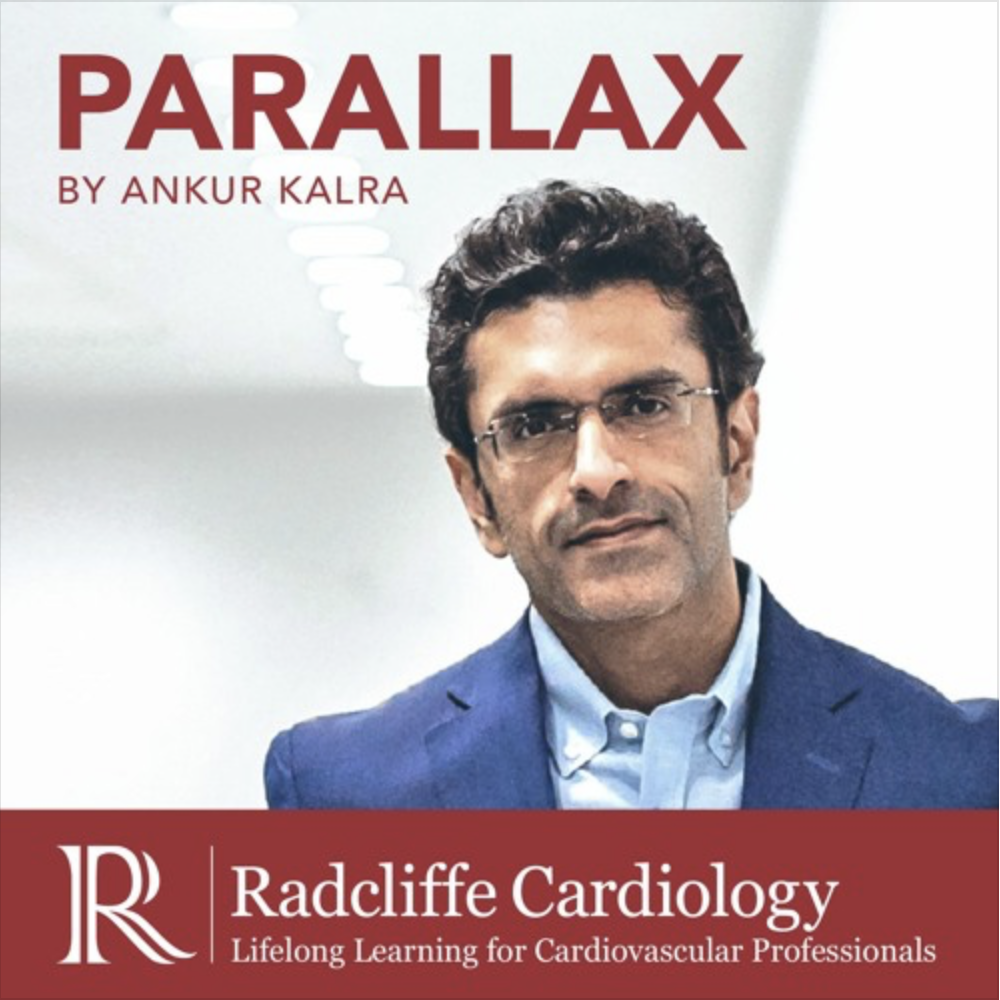
This week Ankur Kalra talks with Lisa Rosenbaum, national correspondent for The New England Journal of Medicine and cardiologist at Brigham and Women’s Hospital.
Lisa Rosenbaum has been writing extensively about the human face of medicine. Her articles have been widely circulated by publications like The New York Times, The New Yorker and The New England Journal of Medicine.
In this edition of Parallax Dr Kalra asked Dr Rosenbaum about the influences that shaped her choices as a writer and as a healthcare professional. Dr Rosenbaum opens up about her childhood and how she connected to her grandfather through writing and medicine. We learn about Lisa’s first day at medical school and her latest writing project.
Tune in to learn about a doctor’s path to medical journalism.
Hosted by @AnkurKalraMD. Produced by @RadcliffeCARDIO.
Connect and submit your questions to Ankur via: podcast@radciffe-group.com.
Related sources:
www.nejm.org/doi/full/10.1056/NEJMms2009984
books.google.co.uk/books/about/A_T…AAJ&redir_esc=y

Ankur Kalra asks Grant W Reed, Director of the Cleveland Clinic’s STEMI program, to reflect on the actions they took and the challenges of delaying cardiovascular procedures in the wake of the coronavirus pandemic. Dr Reed offers insight on the factors that influenced the Cleveland Clinic’s STEMI policy for COVID-19. Ankur and Grant discuss the triage considerations for patients with structural heart disease and the steps the clinic took to protect its healthcare workers.



What is the Global Cardiology University project? How does Dr Anavekar encourage trainees to re-examine their role in patient care? What is his advice to our listeners?

As Dr Kalra asks Dr Rao about the ways in which early career faculty members can get involved with the organization at a state level. Dr Rao shares his insider tips and highlights key events where individuals can further their participation.
How can you get involved with your local ACC chapter? How can you improve your leadership skills? What is Dr Rao’s advice for our listeners?

He explains how the complexity of nutrition and the compounds generated by the gut microbiome can impact our health. We learn more about three compounds produced by our gut microbiome that have a strong connection with heart disease.
Through this conversation, Dr Vuyisich invites us to reframe our approach to nutrition and prevention as a question of food education and data-driven science.


This episode features a vascular neurologist and an interventional cardiologist who will discuss the relationship between their two fields of medicine.

In this rich and insightful discussion, Dr Kittleson talks about the origins of famous #kittlesonrules, a collection of tips for doctors shared on Twitter, and her thoughts on mentorship. We learn more about Mastering the Art of Patient Care. Dr Kalra and Dr Kittleson discuss strategies for managing difficult situations in patient care.

What do you need to know about hospital investigations? What is the difference between OPPE and FPPE? How can you get educated on hospital bylaws and processes?




What is the Global Cardiology University project? How does Dr Anavekar encourage trainees to re-examine their role in patient care? What is his advice to our listeners?

As Dr Kalra asks Dr Rao about the ways in which early career faculty members can get involved with the organization at a state level. Dr Rao shares his insider tips and highlights key events where individuals can further their participation.
How can you get involved with your local ACC chapter? How can you improve your leadership skills? What is Dr Rao’s advice for our listeners?

He explains how the complexity of nutrition and the compounds generated by the gut microbiome can impact our health. We learn more about three compounds produced by our gut microbiome that have a strong connection with heart disease.
Through this conversation, Dr Vuyisich invites us to reframe our approach to nutrition and prevention as a question of food education and data-driven science.





